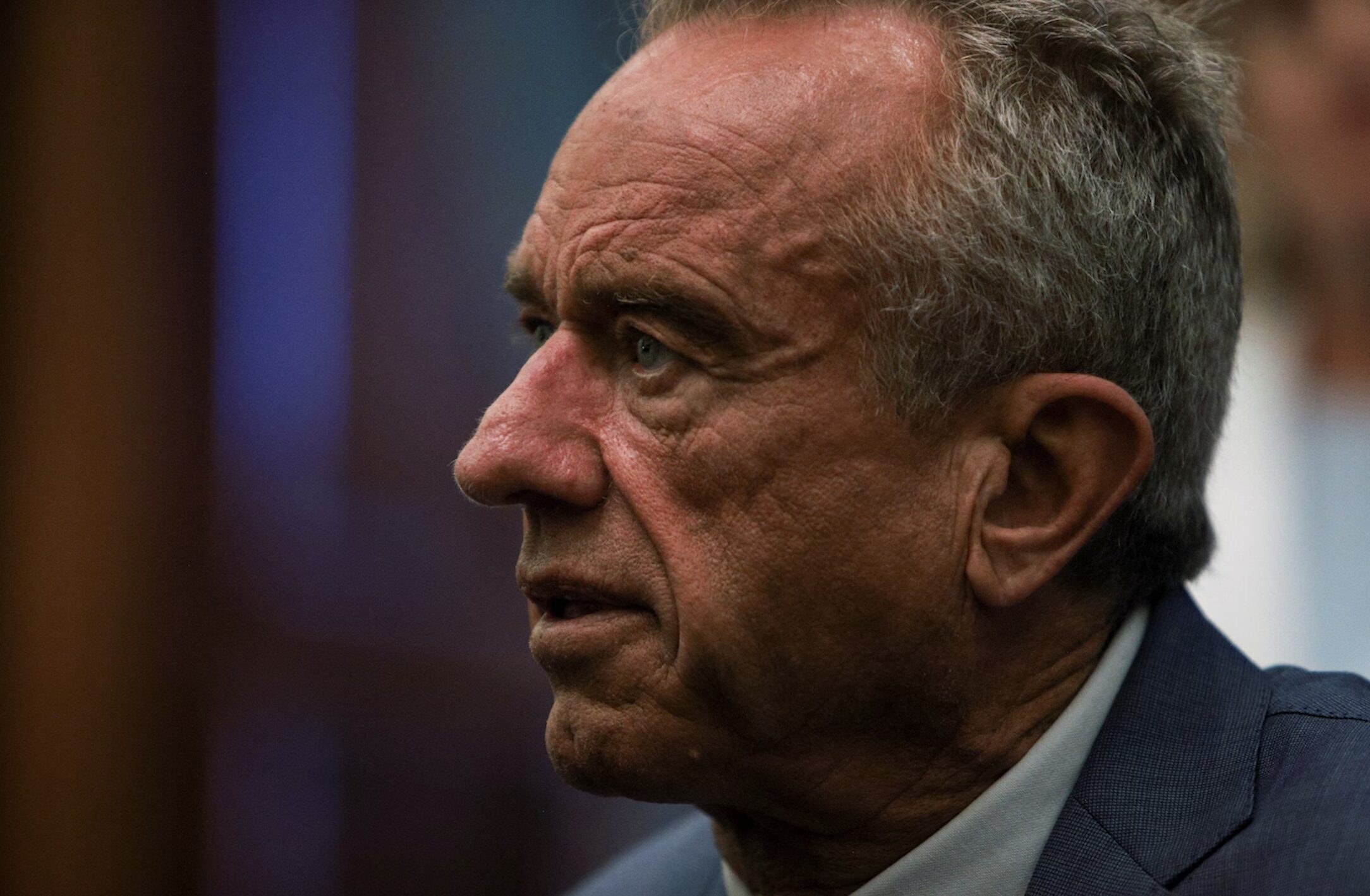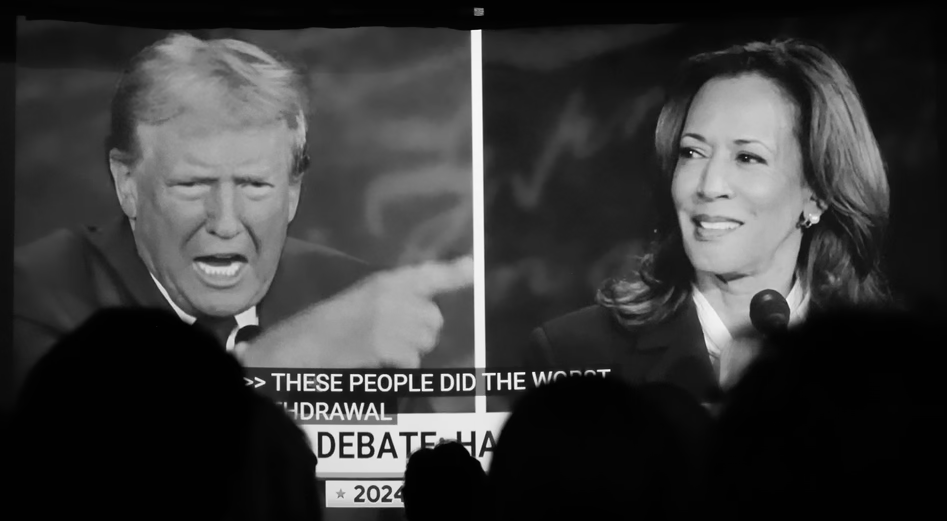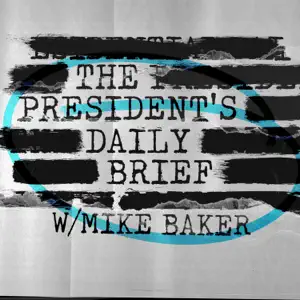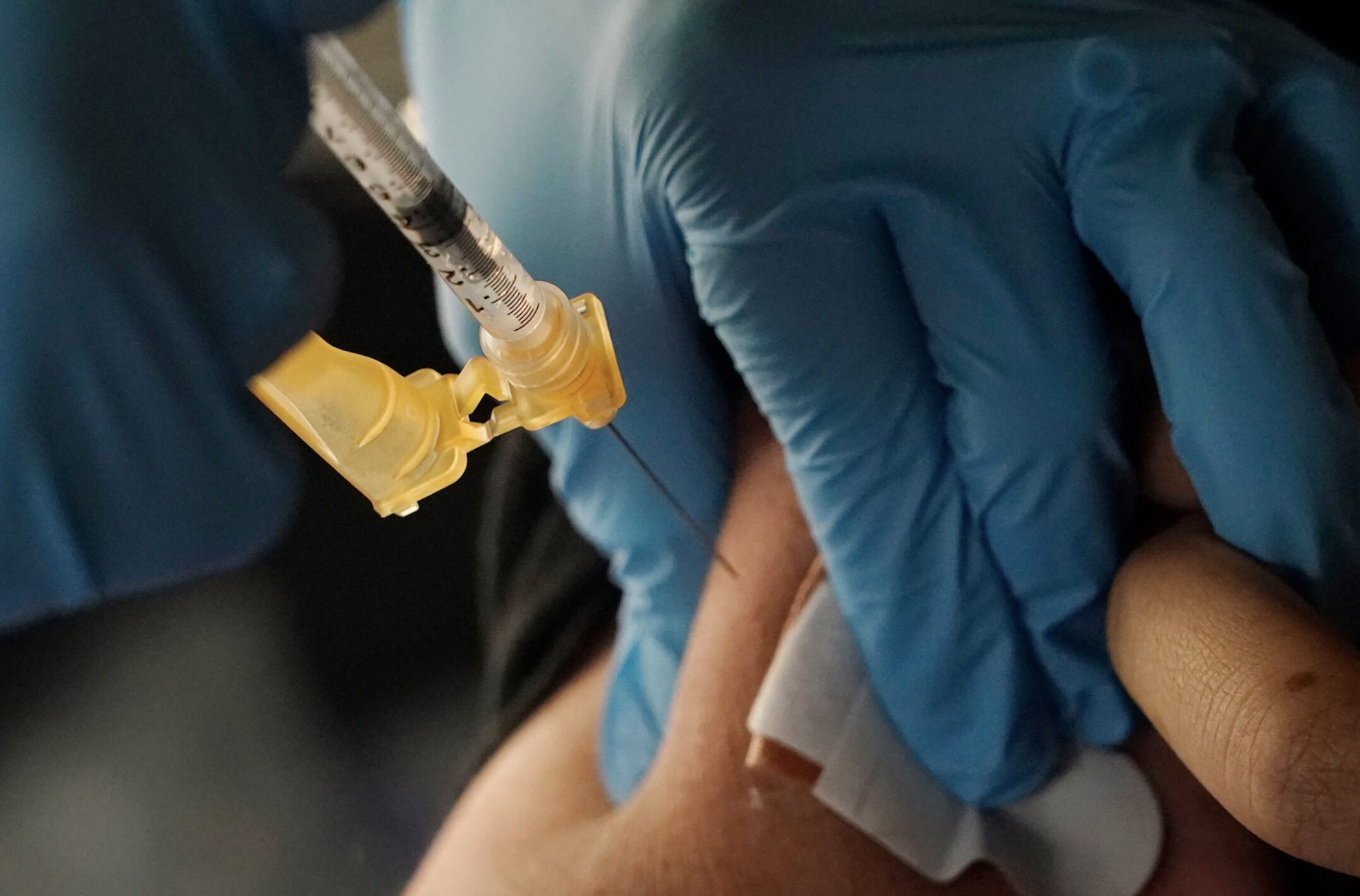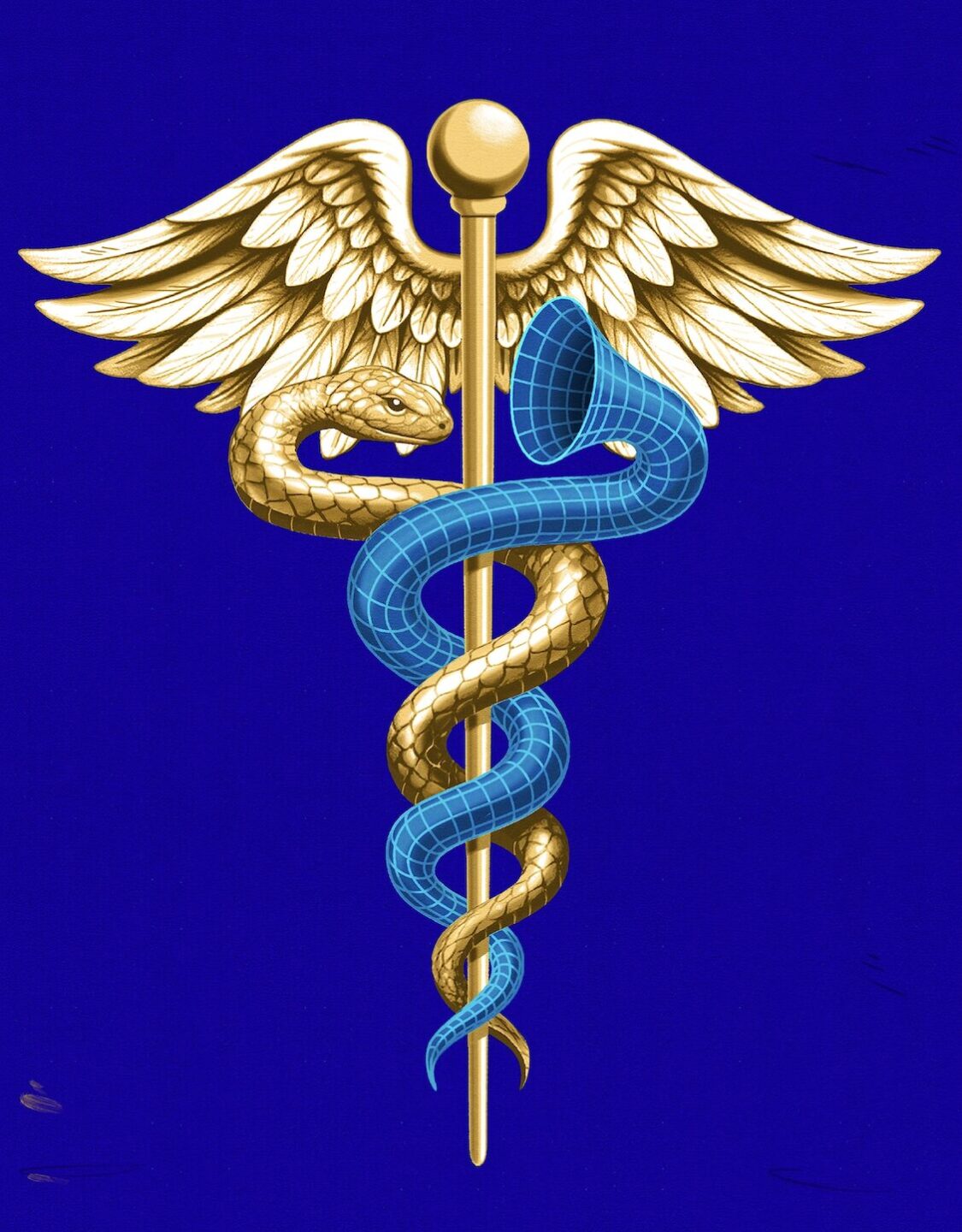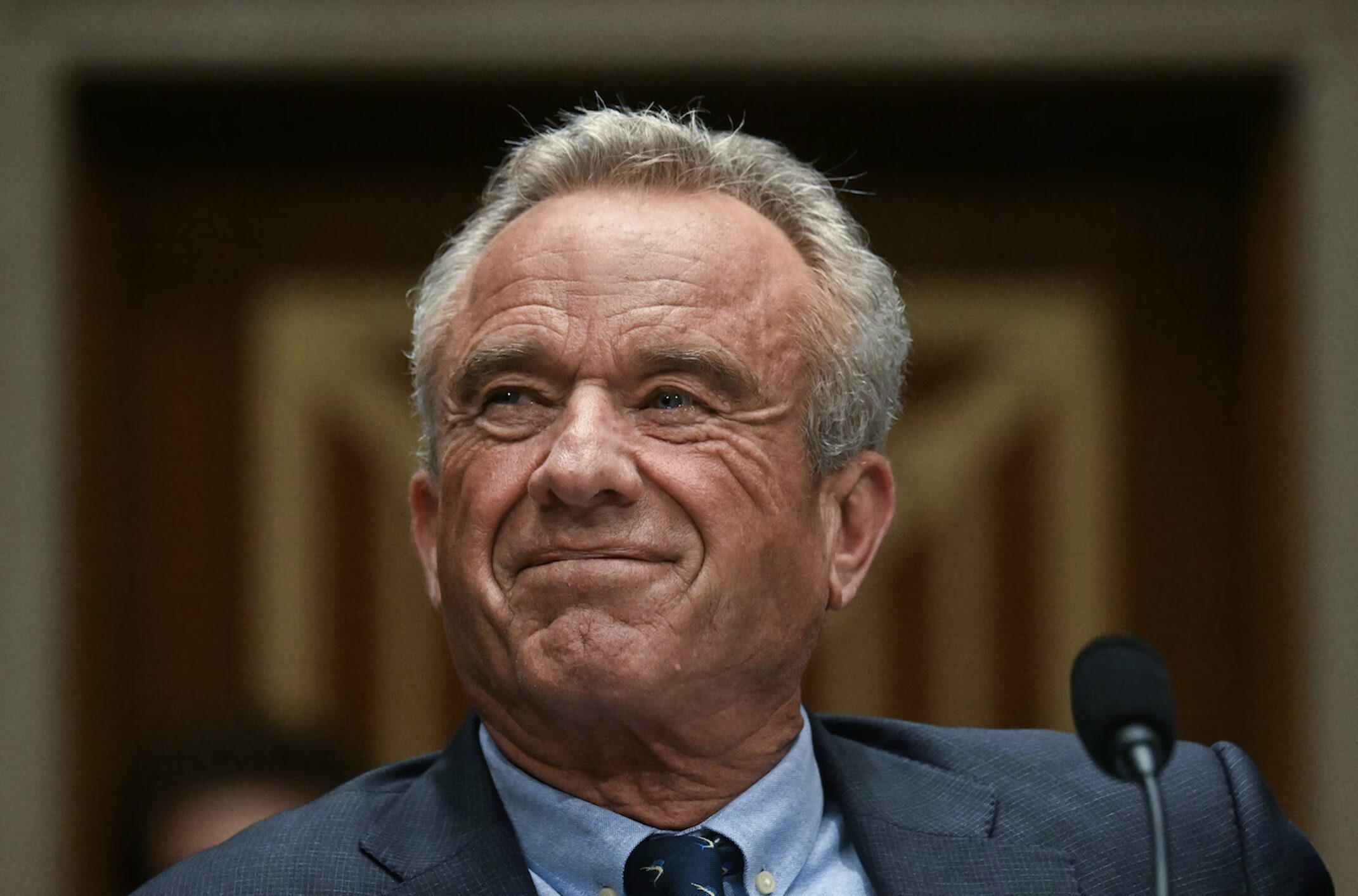The Food and Drug Administration on Wednesday announced major restrictions to the coronavirus vaccine. Whereas it was previously authorized for everyone 6 months and older, the updated shot will now be limited to adults 65 and older and younger people with certain underlying medical conditions.
This decision will limit vaccine access for many Americans seeking additional protection from covid-19. It is merely the opening salvo of Health and Human Services Secretary Robert F. Kennedy Jr.’s calculated strategy to unravel the nation’s vaccine infrastructure.
Few would dispute that coronavirus vaccines are most important for the elderly and other vulnerable people. Indeed, the concept of narrowing vaccine recommendations to better focus on high-risk individuals is one that I and many public health experts have championed.
It also seemed to be the direction the Centers for Disease Control and Prevention was headed. During an April meeting of its Advisory Committee on Immunization Practices, many experts favored this change, though with a key difference: They — and I — wanted a permissive recommendation, meaning lower-risk people could still have the choice to get the vaccine.
This is an important distinction. The change needed to come from the CDC, not the FDA. The FDA limiting approval means that lower-risk younger people who want the vaccine will need to persuade their doctors to prescribe it “off-label” and then find a pharmacist willing to administer it. These are significant barriers that will effectively prevent this group from opting for coronavirus shots going forward.
What’s more, there is no guarantee the CDC will recommend coronavirus vaccines even to older, higher-risk individuals. In June, Kennedy removed all 17 members of CDC’s advisory committee and reconstituted it with people of dubious qualifications, including prominent anti-vaccine activists. Retsef Levi, who has called for coronavirus vaccines to be removed from the market, is now leading a review of their safety. Another member of this safety review subgroup, Robert Malone, has propagated the falsehood that coronavirus shots cause a form of AIDS.
The advisory committee is scheduled to meet next month to vote on the 2025-2026 coronavirus vaccine recommendations. Normally, the meeting would come with two additional safeguards: First, career CDC staffers would provide expert data analysis summarizing the evolving epidemiology of the coronavirus, emerging data on vaccine effectiveness and modeling of the vaccine’s impact. Second, the CDC director would have final authority and could overrule the committee’s recommendations.
These two moderating factors are gone. The CDC director, Susan Monarez, has been fired less than a month into her tenure after not ceding to Kennedy on vaccine policy. In an extraordinary public showdown on Wednesday, she declined to resign, forcing the White House to fire her. Monarez’s attorneys issued a statement that she “refused to rubber-stamp unscientific, reckless directives” and that Kennedy was “weaponizing public health for political gain.” On Thursday, Kennedy appointed one of his top deputies, a noted CDC critic, as acting director of the agency.
Other high-ranking CDC officials have stepped down, including chief medical officer Debra Houry and Demetre Daskalakis, who directed the center overseeing immunization and respiratory diseases. In his resignation letter, Daskalakis denounced policy decisions that relied on cherry-picked studies and deliberately shut out CDC subject-matter experts. “I have never experienced such radical non-transparency, nor have I seen such unskilled manipulation of data to achieve a political end rather than the good of the American people,” he wrote.
Against the backdrop of these high-profile departures, Americans should brace for the worst. The CDC’s advisory committee might well come out with manufactured “data” showing that coronavirus vaccines do more harm than good and use it to justify further restrictions on access. Kennedy, who has long expressed hostility toward mRNA vaccines, no doubt would press his acting CDC director to accept those recommendations, leaving vulnerable Americans unprotected as covid cases climbed.
Childhood vaccines could be next on the chopping block. The advisory committee is already considering pulling hepatitis B immunizations and the measles, mumps, rubella and varicella vaccine from the standard schedule of shots that nearly all kids receive. At a recent Cabinet meeting, Kennedy hinted at a major announcement next month. “We’re finding interventions, certain interventions now that are clearly, almost certainly causing autism,” he said. Given his years of activism promoting the thoroughly debunked link between vaccines and autism and his hiring of discredited vaccine skeptic David Geier to lead the federal government “study” on the topic, the outcome seems all but predetermined.
Major medical organizations, academic experts, and state and local health officials will try their best to counter misinformation with clear messaging and evidence-based guidance. But their efforts will be limited, especially if the federal government uses its regulatory authorityto curtail vaccine access. The question likely isn’t whether vaccines will be removed from the childhood immunization schedule, but which ones, how quickly and how many people will pay the price.
Dr. Leana Wen is a compelling keynote speaker because she combines her expertise as a physician and public health leader with a unique ability to translate complex medical issues into clear, actionable guidance for the public. Her thoughtful commentary on critical health topics—from vaccines to health equity—makes her an invaluable voice in today’s fast-evolving healthcare landscape. With her deep experience in both clinical practice and policy, she empowers audiences to make informed decisions and engage meaningfully with public health challenges. To host her at your event,
contact us.


